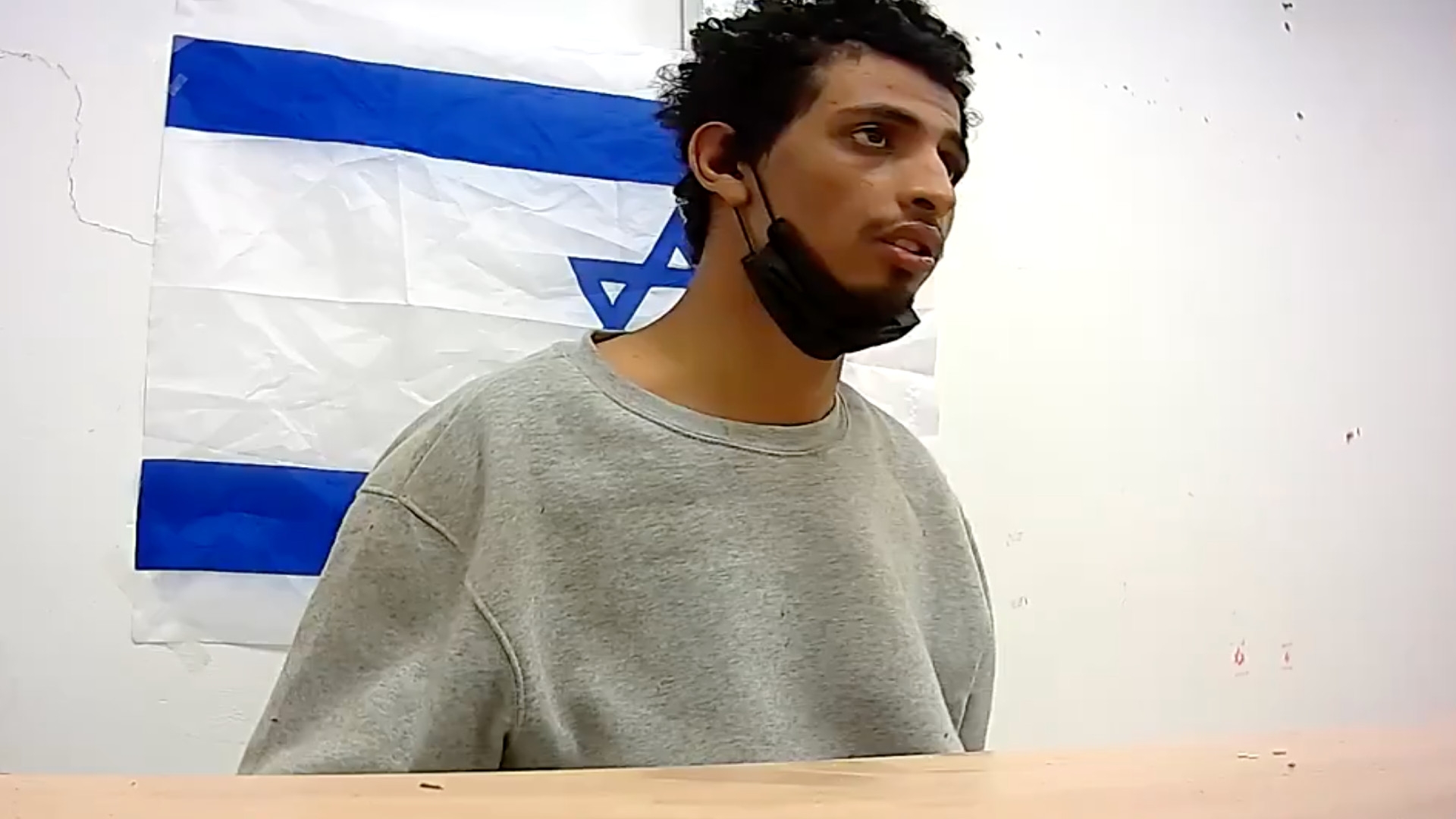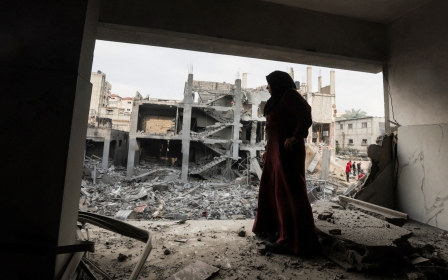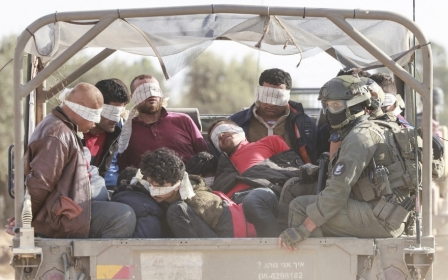War on Gaza: Israel likely tortured Palestinian to record rape confession, say rights groups

Human rights groups have questioned the credibility of an Israeli forces interrogation video, in which an alleged member of Islamic Jihad confesses to raping an Israeli woman during the Hamas-led attack on southern Israel on 7 October.
The video, posted online by the Israeli forces on Thursday, shows the man, named as Manar Mahmoud Muhammad Qasem, allegedly a member of the Palestinian Islamic Jihad’s naval force, appearing to admit to the rape during an interrogation by the Israei Intelligence Division.
But human rights groups and commentators have questioned the credibility of the confession, saying it was likely produced under torture. They cited the surge in arbitary arrests and "inhuman and degrading treatment" of Palestinian detainees by Israeli forces since 7 October.
"In light of Israel's decades-long track record of mistreating and torturing Palestinian detainees and resulting well-founded concerns that the interrogations could have involved the use of torture or other forms of ill-treatment, Human Rights Watch does not rely on, nor consider credible, accounts recorded in videos of interrogations of detained Palestinians they say participated in the 7 October assault," Israel and Palestine director at Human Rights Watch, Omar Shakir, told Middle East Eye.
Meanwhile, Amnesty International's researcher on Israel and the Occupied Palestinian territories, Budour Hassan, said that "any public 'confession' made by the defendants should be excluded from the evidence considered by court".
"Amnesty International reiterates its call on the Israeli authorities to end the practice of filming alleged confessions by detained individuals and broadcasting them on social media in advance of their trial," she told MEE.
The video was deleted and reposted several times after commentators noted inconsistencies in the testimony and subtitle mistranslations.
The alleged confession was first reported in December. Since then, despite Qasem providing a detailed description of the victim's physical appearance, the Israeli forces have failed to identify the woman.
The alleged testimony comes after the UN Agency for Palestinian Refugees (Unrwa) accused Israel of extracting false confessions from the agency's staff under torture about their ties to Hamas.
Surge in arbitrary detention and torture
Israeli authorities have long arbitrarily detained and tortured Palestinian detainees, with over 1400 complaints of torture, including painful shackling, sleep deprivation, and exposure to extreme temperatures, by Shin Bet, Israel’s internal security service, filed with Israel’s Justice Ministry since 2001.

The 2002 Unlawful Combatants Law permits Israeli forces to detain Palestinians from the Gaza Strip with minimal judicial oversight.
Since 7 October, extended emergency measures have facilitated a surge in arbitrary arrests and a rapid deterioration in detention conditions, with many Palestinians reporting physical and psychological trauma at the hands of Israeli forces.
Since the current Israeli onslaught on Gaza began, Israeli forces have arrested over 7,350 Palestinians in the occupied West Bank alone.
At least 250 of the detainees are children, and over half are in administrative detention, which means they can be held indefinitely without due process.
In March, Haaretz reported that 27 Gaza detainees had died in Israeli military facilities since the start of the war.
While some have been released, 9,100 remain in detention, compared to the 5,200 Palestinians held in Israeli prisons before 7 October.
These figures exclude the hundreds of Palestinians reportedly arbitrarily detained, tortured, and interrogated in Gaza.
This article is available in French on Middle East Eye French edition.
Middle East Eye propose une couverture et une analyse indépendantes et incomparables du Moyen-Orient, de l’Afrique du Nord et d’autres régions du monde. Pour en savoir plus sur la reprise de ce contenu et les frais qui s’appliquent, veuillez remplir ce formulaire [en anglais]. Pour en savoir plus sur MEE, cliquez ici [en anglais].




